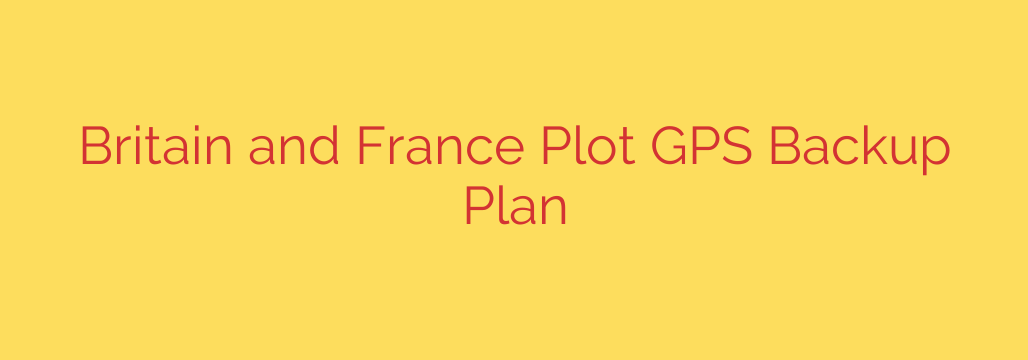
Building Resilience: Why Nations Are Planning for a GPS Backup
We rely on GPS for far more than just finding our way home. This invisible infrastructure, part of the broader Positioning, Navigation, and Timing (PNT) systems, underpins critical sectors globally, from transportation and logistics to finance, power grids, and even agriculture. But what happens if this vital system is disrupted? Growing concerns over the vulnerability of satellite-based navigation to jamming and spoofing attacks are prompting nations to seek robust alternative solutions.
The potential for widespread disruption from PNT system failures is significant. Experts warn that intentional interference, whether from state actors or malicious groups, could cripple modern economies. Recognizing this threat, nations are increasingly collaborating to develop resilient backup systems.
A notable example is the joint initiative between the United Kingdom and France. These countries are reportedly exploring plans to create a terrestrial-based backup system for GPS and other satellite navigation services. This move highlights the strategic importance placed on ensuring uninterrupted PNT services, even when satellite signals are compromised.
While details are still emerging, such backup systems often involve technologies like eLoran (enhanced Long Range Navigation). eLoran is a low-frequency radio navigation system that operates independently of satellites. Its signals are much stronger than GPS signals by the time they reach the ground and are highly resilient to jamming and spoofing, making it an ideal complementary or backup system. Deploying and maintaining such infrastructure requires significant investment and international cooperation, underscoring the commitment to protecting national and economic security.
The initiative reflects a broader global trend towards strengthening PNT resilience. Governments and industries are realizing that over-reliance on a single system, no matter how effective, poses an unacceptable risk. Developing diverse and independent navigation and timing sources is becoming a strategic imperative to safeguard critical infrastructure and maintain operational continuity in the face of potential threats.
For citizens and businesses, understanding this increasing focus on resilient navigation systems is crucial. While individual users might not directly interact with a system like eLoran, its successful implementation would indirectly benefit everyone by ensuring the stability of the services they rely on daily – from banking transactions to timely deliveries and safe travel. Investing in resilient PNT is an investment in the future security and stability of our interconnected world. It’s a proactive step to ensure that vital services continue to function, even when the signals from space are under attack.
Source: https://go.theregister.com/feed/www.theregister.com/2025/07/14/britain_france_navigation_alternatives/








